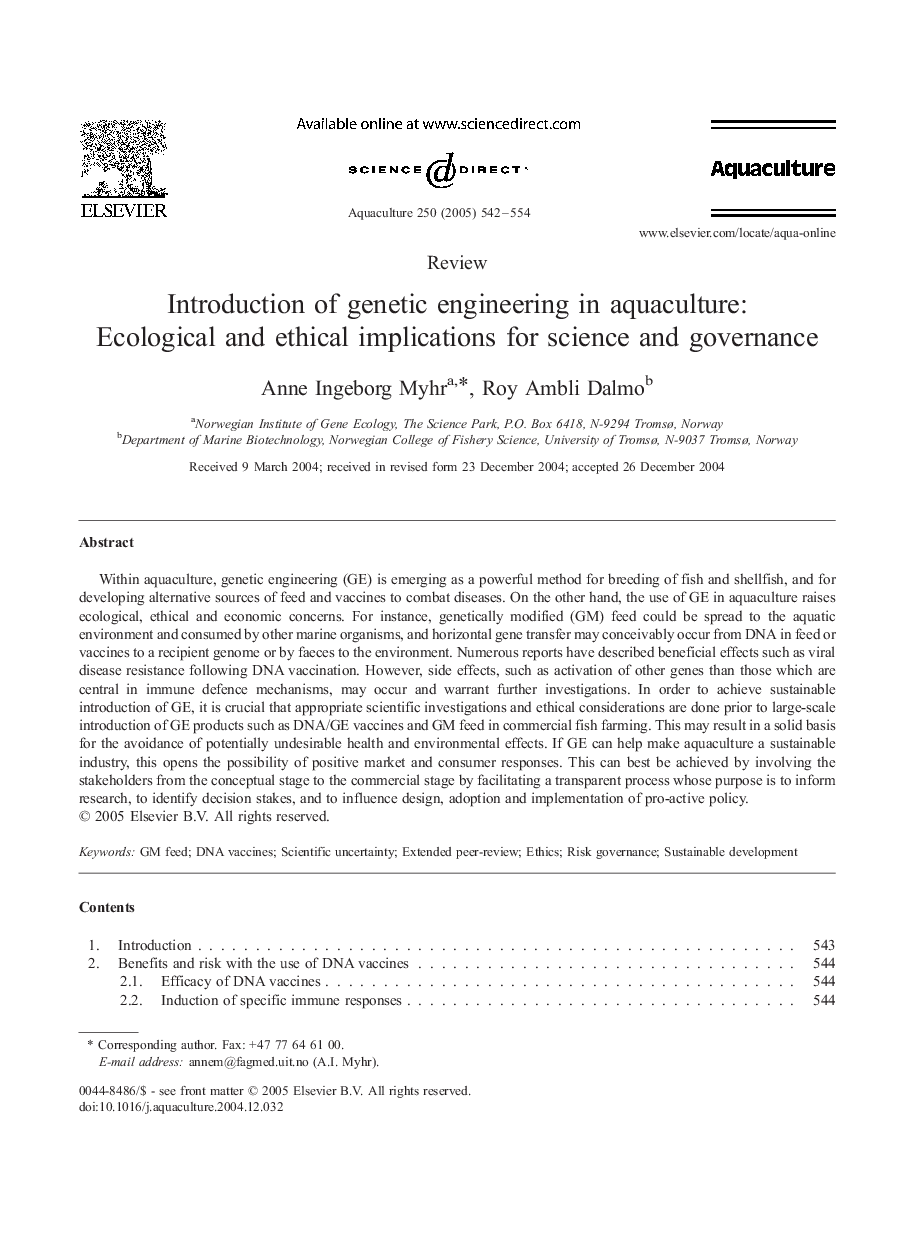| Article ID | Journal | Published Year | Pages | File Type |
|---|---|---|---|---|
| 8974549 | Aquaculture | 2005 | 13 Pages |
Abstract
Within aquaculture, genetic engineering (GE) is emerging as a powerful method for breeding of fish and shellfish, and for developing alternative sources of feed and vaccines to combat diseases. On the other hand, the use of GE in aquaculture raises ecological, ethical and economic concerns. For instance, genetically modified (GM) feed could be spread to the aquatic environment and consumed by other marine organisms, and horizontal gene transfer may conceivably occur from DNA in feed or vaccines to a recipient genome or by faeces to the environment. Numerous reports have described beneficial effects such as viral disease resistance following DNA vaccination. However, side effects, such as activation of other genes than those which are central in immune defence mechanisms, may occur and warrant further investigations. In order to achieve sustainable introduction of GE, it is crucial that appropriate scientific investigations and ethical considerations are done prior to large-scale introduction of GE products such as DNA/GE vaccines and GM feed in commercial fish farming. This may result in a solid basis for the avoidance of potentially undesirable health and environmental effects. If GE can help make aquaculture a sustainable industry, this opens the possibility of positive market and consumer responses. This can best be achieved by involving the stakeholders from the conceptual stage to the commercial stage by facilitating a transparent process whose purpose is to inform research, to identify decision stakes, and to influence design, adoption and implementation of pro-active policy.
Related Topics
Life Sciences
Agricultural and Biological Sciences
Aquatic Science
Authors
Anne Ingeborg Myhr, Roy Ambli Dalmo,
